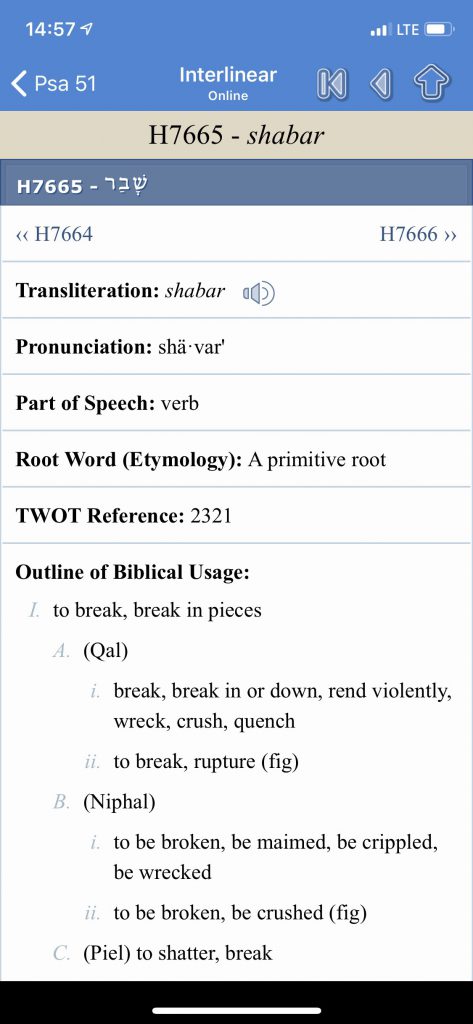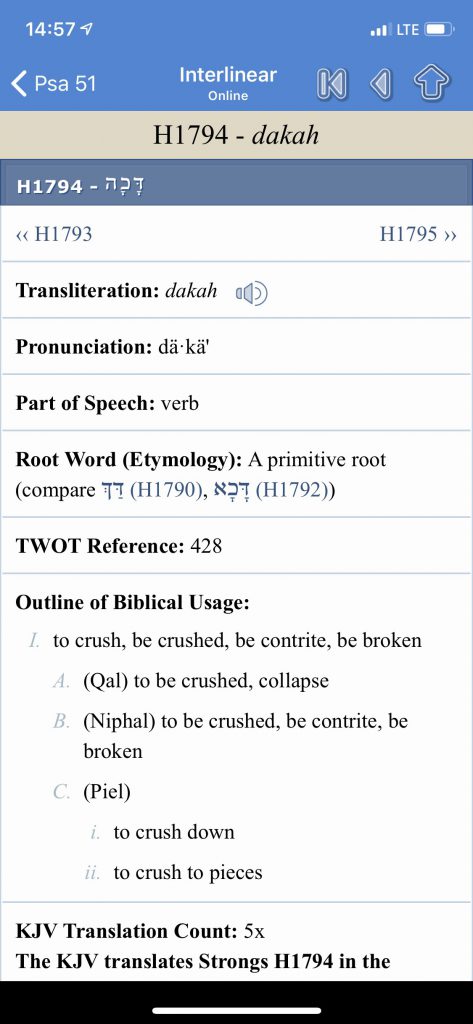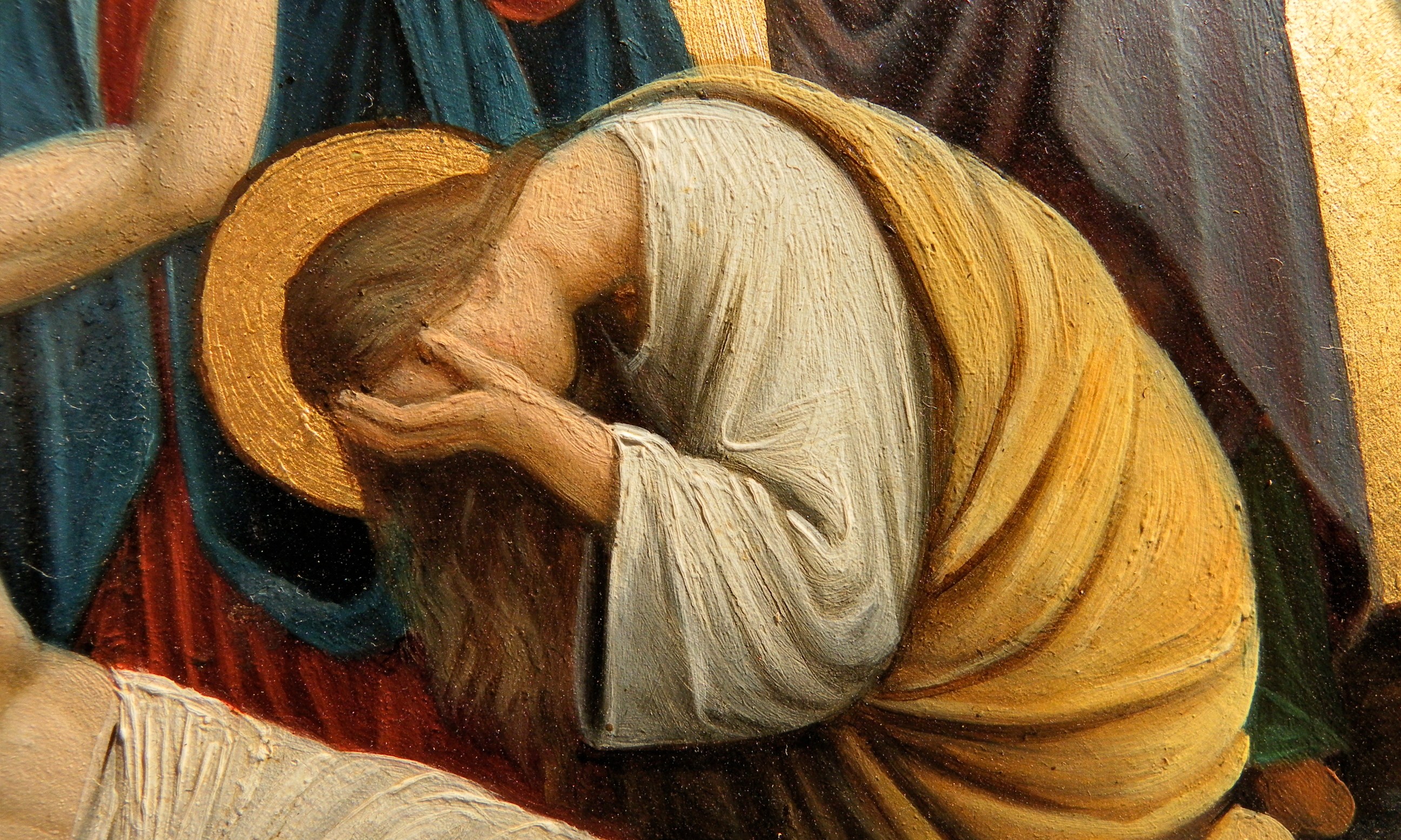The sacrament of penance, also called the sacrament of reconciliation (or confession) has four necessary parts, three of which are on the part of the penitent: 1) contrition (sorrow) 2) confession of sins (to a priest, in person) and satisfaction (also called your penance, done outside the confessional.) The one aspect of a good confession executed by the priest is absolution (provided the priest has judged the penitent worthy of absolution.)
Last year during Lent, I gave a sermon called How to Make a Good Confession found on both my podcast and Sensus Fidelium‘s YouTube on these external parts of confession. Since then, I have started to read the Catechism of Pope St. Pius X (CPX) and I have discovered an overwhelming importance on sorrow for sins while approaching the confessional that I did not include in the above talk. In this very short catechism (which I recommend for any adult or teenager) Pope St. Pius X spends a full four pages on sorrow as the most important part of a good confession! (To give you an idea of how short a catechism this is, Confirmation only takes up three pages.)1
I normally do not write commentary blog posts on another’s words, but below I am going to give a few insights below the questions and answers of the CPX dealing with sorrow in confession. (If you only want to read the saintly Pope’s words on contrition in confession, you can obviously skip my commentary in the bold red font below.)
23 Q. How many conditions are necessary to make a good confession?
A. To make a good confession five things are necessary:
(1) Examination of conscience;
(2) Sorrow for having offended God;
(3) A resolution of sinning no more;
(4) Confession of our sins;
(5) Satisfaction or penance.
Notice that the external parts of confession are verbal confession, absolution and satisfaction (your “penance” to do.) The silent or internal parts of a confession (in the heart and mind) are examination, sorrow and resolution. The CPX says that of all the parts of confession, sorrow is the most important!
24 Q. What should we do first of all to make a good confession?
A. To make a good confession we should first of all earnestly beseech God to give us light to know all our sins and strength to detest them.
This one obviously refers to examination of conscience. As we ask God for light to know our sins, we should also have a pen and paper handy so as to write down our sins before entering the confessional.
11 Q. What is contrition or sorrow for sins?
A. Contrition or sorrow for sin is a grief of the soul leading us to detest sins committed and to resolve not to commit them any more.
Notice that the rest of this blog post will deal with sorrow.
12 Q. What does the word contrition mean?
A. Contrition means a crushing or breaking up into pieces as when a stone is hammered and reduced to dust.
When King David commits adultery with Bathsheba (2 Sam 11) and David’s subsequent murder of her husband Uriah (2 Sam 11) David then composes the Miserere in repentance (Ps 50/51.) That Psalm has the famous line, “A sacrifice to God is an afflicted spirit: a contrite and humbled heart, O God, Thou will not despise.” (DRB.) The word afflicted in the DRB is broken in the NIV and shabar in the Hebrew. That word contrite in the English is dakah in the Hebrew. I was surprised to see how much of the CPX section on sorrow reflects the Hebrew dictionary on those two words of the Miserere. Below, King David, inspired by the Holy Spirit, asks for a heart that is crushed, collapsed, smashed to pieces, broken down, torn violently, ruptured, wrecked and shattered:


Q. Why is the name of contrition given to sorrow for sin?
A. The name of contrition is given to sorrow for sin to signify that the hard heart of the sinner is in a certain way crushed by sorrow for having offended God
18 Q. Of all the parts of the sacrament of Penance which is the most necessary?
A. Of all the parts of the sacrament of Penance the most necessary is contrition, because without it no pardon for sins is obtainable, while with it alone, perfect pardon can be obtained, provided that along with it there is the desire, at least implicit, of going to confession.
In my above podcast, I said very little about deep, heart-felt contrition, or sorrow. I now see I was lacking in that sermon in one major thing: In his catechism, Pope St. Pius X treats of contrition not as a shallow feeling but “the most necessary part of the sacrament of Penance”!
36 Q. What is sorrow for sin?
A. Sorrow for sin consists in grief of soul and in a sincere detestation of the offence offered to God.
Notice this includes the affective level of grief, but also a detestation of past sins in the very intellect and will.
37 Q. How many kinds of sorrow are there?
A. Sorrow is of two kinds: perfect sorrow or contrition; and imperfect sorrow or attrition.
38 Q. What is perfect sorrow or contrition?
A. Perfect sorrow is a grief of soul for having offended God because He is infinitely good and worthy of being loved for His own sake.
If you have trouble coming up with imperfect contrition (attrition) or perfect contrition, my first suggestion is: Simply ask God for true sorrow for your sins. He probably will give it. Secondly, another way to spur your heart on to sorrow for your sins is to watch the scourging scene in Mel Gibson’s Passion of the Christ:


39 Q. Why do you call the sorrow of contrition perfect sorrow?
A. I call the sorrow of contrition perfect sorrow for two reasons:
(1) Because it considers the goodness of God alone and not our own advantage or loss;
(2) Because it enables us at once to obtain pardon for sins, even though the obligation to confess them still remains.
If you are about to die without a priest, ask God immediately for the gift of perfect contrition—that is—sorrow for sins because you are overwhelmed at the goodness of God (more than fear of hell.) The best habitual approach to love of God and your own salvation is of course frequent confession and a constant sorrow for past sins, while realizing that the one thing greater than my ability to sin is my Heavenly Father’s ability to forgive me.
40 Q. Perfect sorrow, then, obtains us pardon of our sins independently of confession?
A. Perfect sorrow does not obtain us pardon of our sins independently of confession because it always includes the intention to confess them.
I can not believe how many “decent” priests have heretically instructed their faithful that they can go to receive Holy Communion in a state of mortal sin, as long as they “say the act of contrition at beginning of Mass.” This is absolutely and patently false, according to numerous infallible Church Councils and Popes. Even if you could not get to the front of the Confession line before Mass, you may never, ever go to Holy Communion in a state of mortal sin, even if you believe you have made an act of perfect contrition with total sorrow. Even with perfect contrition, you must confess mortal sins before receiving Holy Communion. (Priests in mortal sin may not offer Mass before confession, either.)
41 Q. Why does perfect sorrow or contrition produce the effect of restoring us to the grace of God?
A. Perfect sorrow or contrition produces this effect, because it proceeds from charity which cannot exist in the soul together with sin.
This means if you commit a mortal sin and then your plane is about to crash and you make an act of perfect contrition (harder than it looks) then you will be saved. But if your plane pulls back up and you’re going to live (!) then you still may not receive Holy Communion until confession. One reason for this is because perfect sorrow always includes the intention to confess the very sins which one felt such sorrow over at the most immediate opportunity that you have to confess.
42 Q. What is imperfect sorrow or attrition?
A. Imperfect sorrow or attrition is that by which we repent of having offended God because He is our Supreme Judge, that is, for fear of the chastisement deserved in this life or in the life to come, or because of the very foulness of sin itself.
The Church ruled around the 12th century that imperfect contrition was sufficient for a good confession. Two doctors of the Church had debated this up to that ruling. How merciful of the Church for her to declare that fear of hell is enough to save your soul preceding a good confession. (Of course, it is better to want to avoid sin due the goodness of God, but approaching with “fire insurance” makes a good confession, provided it is accompanied by firm resolution of amendment to avoid in the future the sins that you confess.) In other words: Aim for contrition (sorrow), but always be assured that attrition (avoidance of future sin) is sufficient for a good confession.
43 Q. What qualities must sorrow have to be true sorrow?
A. Sorrow in order to be true must have four qualities: It must be internal, supernatural, supreme and universal.
44 Q. What is meant by saying that sorrow must be internal?
A. It means that it must exist in the heart and will, and not in words alone.
Whoever said that pre-Vatican II Catholicism was routine words without any relationship to God has obviously never read the Catechism of Pope St. Pius X (or any saint, for that matter.)
45 Q. Why must sorrow be internal?
A. Sorrow must be internal because the will, which has been alienated from God by sin, must return to God by detesting the sin committed.
46 Q. What is meant by saying that sorrow must be supernatural?
A. It means that it must be excited in us by the grace of God and conceived through motives of faith.
47 Q. Why must sorrow be supernatural?
A. Sorrow must be supernatural because the end to which it is directed is supernatural, namely, God’s pardon, the acquisition of sanctifying grace, and the right to eternal glory.
48 Q. Explain more clearly the difference between natural and supernatural sorrow.
A. He who repents of having offended God because God is infinitely good and worthy of being loved for His own sake; of having lost Heaven and merited hell; or because of the intrinsic malice of sin, has supernatural sorrow, since all these are motives of faith. On the contrary, he who repents only because of the dishonour or chastisement inflicted by men, or because of some purely temporal loss, has a natural sorrow, since he repents from human motives alone.
Notice that several times the CPX says our number-one drive to a good confession should not be a random laundry list of sins, but the “goodness of God.”
49 Q. Why must sorrow be supreme?
A. Sorrow must be supreme because we must look upon and hate sin as the greatest of all evils, being as it is an offence against God.
50 Q. To have sorrow for sin, is it necessary to weep, as we sometimes do, in consequence of the misfortunes of this life?
A. It is not necessary to shed tears of sorrow for our sins; it is enough if in our heart we make more of having offended God than of any other misfortune whatsoever.
How many Catholic Americans would consider a single mortal sin in a family member to be a worse “misfortune” than the loss of a whole family in a car wreck or a home in a fire?
51 Q. What is meant by saying that sorrow must be universal?
A. It means that it must extend to every mortal sin committed.
52 Q. Why should sorrow extend to every mortal sin committed?
A. Because he who does not repent of even one mortal sin still remains an enemy to God.
I could not find the quote, but St. John Chrysostom explains somewhere that hiding a single sin in confession invalidates the entire confession. He compares it to a surgeon excising malignant cancer from a patient who keeps some of the cancer hidden, in a different area. Of course, the cancer in such a case will remain and will grow. The CPX is saying even more: Not only is an integral (complete) confession enough, but one should feel sorrow for every mortal sin of his past.
53 Q. What should we do to have sorrow for our sins?
A. To have sorrow for our sins we should ask it of God with our whole heart, and excite it in ourselves by the thought of the great evil we have done by sinning.
If this blog post is making you feel bad for not having enough sorrow, don’t worry! Just simply ask the Father in the name of Jesus for more sorrow for you sins. I believe He will give it to you. Again, go watch the scourging scene of the Passion of the Christ while remembering He took your place at the pillar.
54 Q. What should you do to excite yourself to detest your sins? A. To excite myself to detest my sins:
(1) I will consider the rigour of the infinite justice of God and the foulness of sin which has defiled my soul and made me worthy of the eternal punishment of hell.
(2) I will consider that by sin I have lost the grace, friendship and sonship of God and the inheritance of Heaven;
(3) That I have offended my Redeemer who died for me and that my sins caused His death;
(4) That I have despised my Creator and my God, that I have turned my back upon Him who is my Supreme Good and worthy of being loved above everything else And of being faithfully served.
I recently saw a video of a very famous American social-media priest (much more conservative than Fr. James Martin SJ) who said that when we return to confession, this is not God giving me another chance, but it is me giving God another chance! This is borderline-blasphemy. The saints would never say that confession is man giving God another chance. When we “consider the rigour of the infinite justice of God” there is no room to believe anything but the truth: Confession is truly God giving man another chance at His own supernatural life.
55 Q. In going to confession should we be extremely solicitous to have a true sorrow for our sins?
A. In going to confession we should certainly be very solicitous to have a true sorrow for our sins, because this is of all things the most important; and if sorrow is wanting the confession is no good.
How many careless confessions I have made…Oh Lord, I Fr. David Nix repent of this. Please stop scrolling and say a “Hail Mary” for me if you have actually made it this far in my long blog post.
56 Q. If one has only venial sins to confess, must he be sorry for all of them?
A. If one has only venial sins to confess it is enough to repent of some of them for his confession to be valid; but to obtain pardon of all of them it is necessary to repent of all he remembers having committed.
57 Q. If one has only venial sins to confess and if he does not repent of even one of them, does he make a good confession?
A. If one confesses only venial sins without having sorrow for at least one of them, his confession is in vain; moreover it would be sacrilegious if the absence of sorrow was conscious.
58 Q. What should be done to render the confession of only venial sins more secure?
A. To render the confession of venial sins more secure it is prudent also to confess with true sorrow some grave sin of the past, even though it has been already confessed. It has been said that the best way to make a good confession is to confess, pretending that the priest is Jesus in the Garden. If your next confession were to be made to Jesus in the Garden, already taking the burden of your sins, how would you confess? As a laundry list? Or with great love?

59 Q. Is it well to make an act of contrition often?
A. It is well and most useful to make an act of contrition often, especially before going to sleep or when we know we have or fear we have fallen into mortal sin, in order to recover God’s grace as soon as possible; and this practice will make it easier for us to obtain from God the grace of making a like act at time of our greatest need, that is, when in danger of death.
